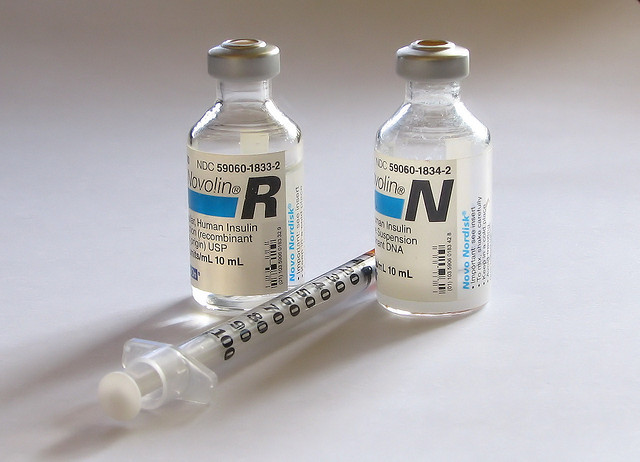Diabetes is a life-changing condition. People diagnosed with type 1 diabetes often have a long time to get used to managing it. They usually receive a diagnosis earlier in life. But type 2 diabetes is more common in people who are aged 40-plus and prompts the need for significant lifestyle changes. Receiving a diagnosis of type 2 diabetes can be a devastating blow. But you can learn to live with the condition and manage it so you can have a healthy lifestyle. The reality is that the disease does change your life and can be difficult to live with. But it’s not impossible to change your habits and routine to try and maintain a healthier lifestyle.
Managing Your Diet
One of the most significant changes that you will have to make to your life is what you eat and drink. Many people who receive a diagnosis of type 2 diabetes have developed the condition due to an unhealthy diet and lack of exercise. When you are diagnosed with diabetes type 2, it’s essential to start managing your diet. You need to help your blood sugar levels stay within the range recommended by your doctor. You need to think about what you eat, as well as portion sizes and balancing the different food groups.
One of the most important things you will probably need to do is educate yourself about carbohydrates. They have a significant impact on your blood sugar levels. It’s especially important to know how many carbohydrates you eat if you take mealtime insulin. This is to ensure you get the right dose. It’s a good idea to get into the habit of measuring out your food, and knowing what it consists of. You should also try to make each meal as balanced as possible. People with diabetes also often find they need to balance their meal times and medication schedule. If you’re unsure how to do this, talk to your diabetes care team.
Getting Plenty of Exercise
If you weren’t getting enough exercise before, it’s time to start thinking about getting more active. Exercising helps to lower your blood sugar level by using up glucose and helping your body use insulin efficiently. Your doctor can help you out by talking to you about what exercise you can do and how much you should do. If you haven’t been active for a while, it’s important to discuss your workouts with them first. They may want to check your health before you begin. Just like with your meals, scheduling your exercise can help you start on track and do what you need to in order to stay healthy.
It’s important to be aware of your blood sugar levels while exercising because physical activity can affect them. You should know your recommended levels, and check them before and after exercising. Make sure you drink plenty of water and have something on hand in case your blood sugar levels drop too low. If you take insulin, your doctor can tell you whether you’ll need to adjust your dosage for exercising.
Looking After Your Mental Health
Your psychological health is also important when you have diabetes. Stress can affect your blood sugar levels due to the hormones your body produces. It’s essential to watch for signs of stress in your life to help you manage it and reduce the likelihood of it affecting you physically. If you’re unsure if stress is causing your blood sugar levels to rise, it’s a good idea to note your stress levels when you test your levels. You might notice that the more stressed you feel, the higher your blood sugar levels are. If this is a pattern, you should find ways to manage your stress. Everyone has their preferred strategies. You might meditate, listen to music, play golf or just schedule your work better.
The Financial Side of Diabetes
One of the things that people might not talk about as much is the financial impact that a diabetes diagnosis can have on your life. Although there is much talk about the cost of diabetes to the healthcare system, there is a personal cost too. People with diabetes can end up paying high costs that their insurance doesn’t cover. They might have to pay for insulin, as well as other medications, as well as other things for managing their health. Not only do they have to spend money on diabetic test strips and other equipment, but maintaining a healthy lifestyle can be expensive. Medicare now covers the cost of diabetes treatment. This includes any equipment you may need, nutrition counseling, flu shots, and other treatments. However, there can be a limit on how much or how often you can receive certain items,
Medicine and Health Monitoring
Staying on top of your medication schedule and monitoring your health is a vital part of living with diabetes. You need to understand when and how to take your medication if you have any. Work with your doctor to let them know if you experience any issues and adjust your medicine if you need to. If you take insulin, make sure you store it properly and don’t use it past its expiration date. If you take any medication for anything else, whether over-the-counter or prescribed, check with your doctor first. You should make sure that it won’t interfere with either your blood sugar levels or your diabetes medication.
Be aware of the times when you might need to be extra vigilant of your blood sugar levels. As well as when you’re exercising, illness could also raise your blood sugar. In women, the hormones produced in menstruation and menopause can have an effect too, so it’s important to monitor your levels more frequently. Alcohol is another thing that can alter your blood sugar. You should check that you can drink alcohol by asking your doctor, and be careful with your drinking habits.
A diabetes diagnosis will mean you need to change your life, but you can still try to maintain a healthy lifestyle. Work with your diabetes care team and take control of your choices to have a better quality of life.





